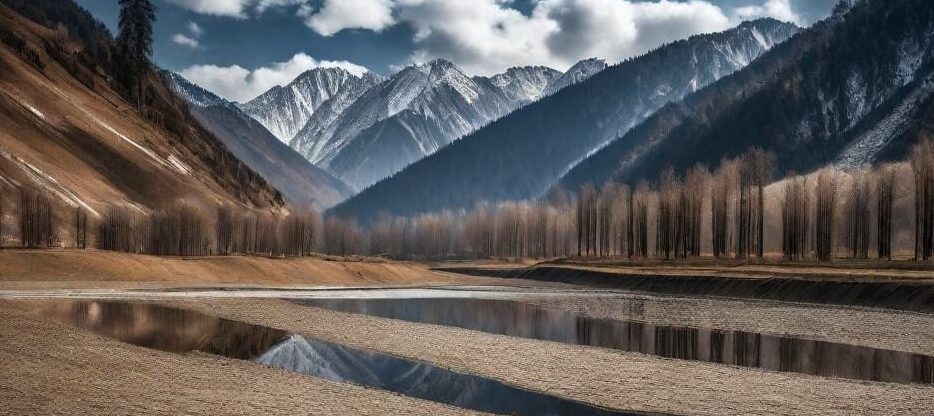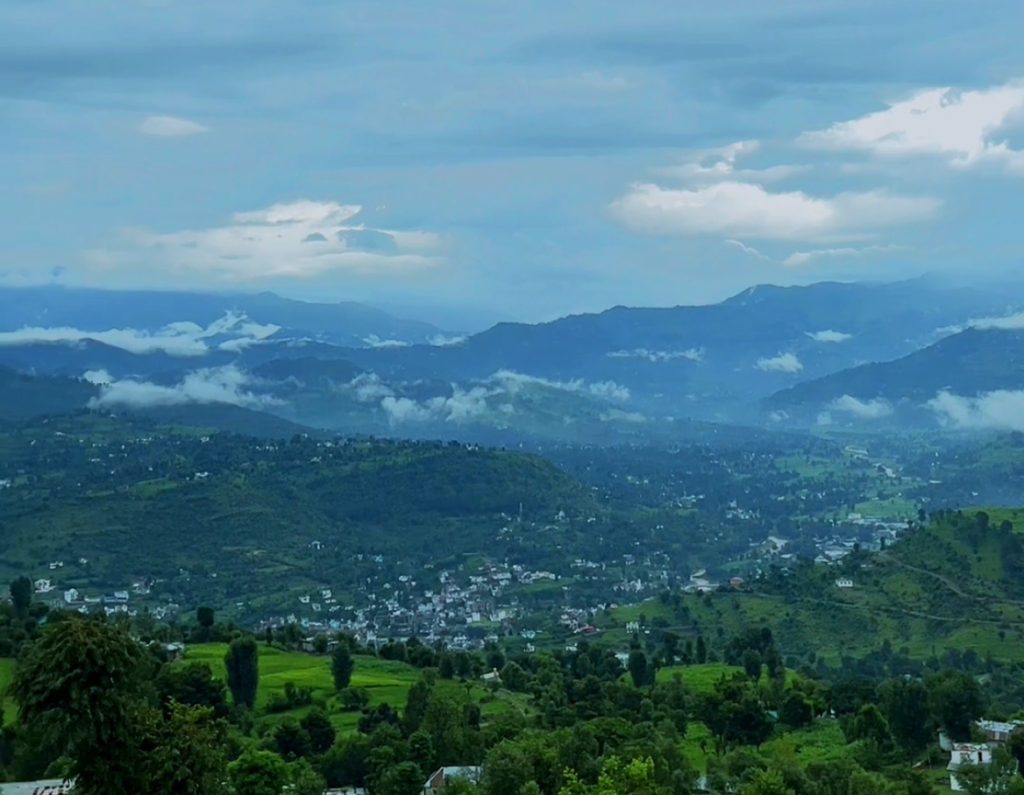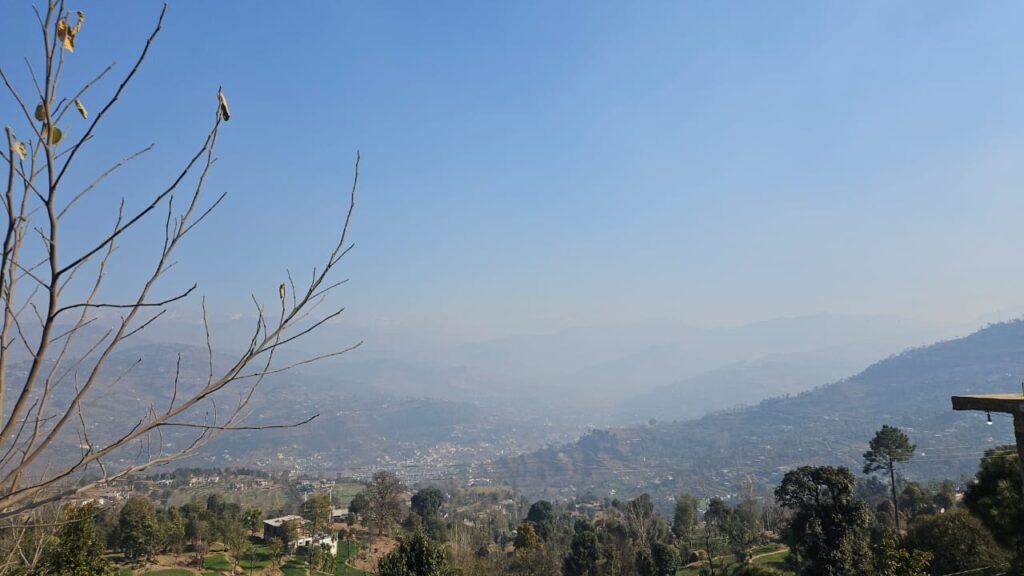"Unprecedented Warmth in Srinagar: Navigating the Impact of a Dry Winter in Kashmir on Water Scarcity and Ecosystem"

In an unexpected twist, the winter season in Kashmir has taken a peculiar turn, leaving experts uneasy. Srinagar, along with other regions in Kashmir, is experiencing a prolonged dry spell that has led to an unanticipated rise in daytime temperatures, raising concerns among specialists.
According to the Meteorological department (MeT), Srinagar saw temperatures surpassing 7-8 degrees Celsius on both Tuesday and Wednesday. This deviation from the colder conditions in Delhi, Chandigarh, and Jammu has left meteorologists puzzled. Mukhtar Ahmad, the Director of MeT, expressed worry about the increasing temperatures and projected that this unusual trend would persist until January 20. He emphasized the potential consequences, underlining the looming threat of water scarcity and related issues.
The Director of MeT, Mukhtar Ahmad, voiced his concerns, stating, “Such elevated temperatures during the day are a cause for concern as they will undoubtedly contribute to water scarcity and other related issues in the times to come.” His apprehension stems from the unexpected warmth gripping the region, disrupting the typical winter chill.

Environmental expert Dr. Muhammad Muslim, an Assistant Professor at Kashmir University’s Environmental Sciences department, also shared his worries about the impact on the winter season, a period traditionally considered crucial for recharging. He pointed out, “Elevated temperatures could impact glaciers and create soil conditions conducive for growth, leading to significant repercussions for the water regime and overall climate.”
The uncharacteristic warmth during this dry winter in Kashmir raises questions about the environmental consequences that could unfold. Dr. Muslim emphasized the potential long-term effects on the water regime and overall climate, urging a closer look at the situation.
The unexpected surge in temperatures has thrown the winter narrative into disarray, as traditionally, this season is synonymous with colder temperatures and snowfall in the Kashmir region. The deviation from this norm has led experts to contemplate the broader implications for the environment and climate.
The Director of MeT, Mukhtar Ahmad, stressed the urgency of addressing this anomaly, forecasting its continuation until January 20. The implications of this dry spell extend beyond the immediate discomfort of warmer days, pointing towards potential challenges related to water scarcity in the future.
The concern over the impact on glaciers and soil conditions, voiced by Dr. Muhammad Muslim, underscores the delicate balance of the region’s ecosystem. The unexpected warmth not only disrupts the usual winter patterns but also poses a threat to the vital water resources in the Kashmir region.
As the dry winter in Kashmir continues to unfold, the spotlight is on the unusual weather patterns that have defied expectations. The repeated deviation from the expected colder conditions has triggered a sense of urgency among experts, urging a comprehensive examination of the potential consequences for the environment, water resources, and overall climate.
The phenomenon of a dry winter in Kashmir has taken center stage, reshaping the seasonal narrative in this picturesque region. Traditionally characterized by chilly temperatures and snowfall, the current deviation towards warmer conditions in Srinagar and other Kashmir regions has raised eyebrows among meteorologists and environmental experts alike. The uncharacteristic dry spell has led to an unexpected surge in daytime temperatures, creating an atmosphere of concern about the potential consequences on the local ecosystem.

One of the major concerns associated with this dry winter in Kashmir is the looming threat of water scarcity. As the region typically relies on winter precipitation, the lack of substantial snowfall raises questions about the availability of water resources in the coming months. The Director of the Meteorological department (MeT), Mukhtar Ahmad, has expressed worry about the persistence of elevated temperatures until January 20, highlighting the urgency of addressing the anomaly to mitigate the risk of future water-related issues.
Environmental experts, including Dr. Muhammad Muslim from Kashmir University, have pointed out the potential impact on glaciers and soil conditions. The warmer temperatures during what is traditionally a recharging period for the ecosystem could disrupt the delicate balance, affecting the region’s water regime and overall climate. As the dry winter in Kashmir unfolds, there is a pressing need for comprehensive studies to understand the long-term implications and implement measures to mitigate potential challenges related to water scarcity and ecosystem stability.
In conclusion, the current dry winter in Kashmir has taken an unexpected turn, with Srinagar experiencing warmer temperatures than usual. The concerns expressed by meteorologists and environmental experts highlight the potential consequences of this unusual weather pattern, emphasizing the need for proactive measures to address the looming threat of water scarcity and related issues in the region. The delicate balance of the ecosystem is at stake, and as the dry spell persists, the long-term impact on glaciers, soil conditions, and overall climate becomes a growing concern for experts in the field.



